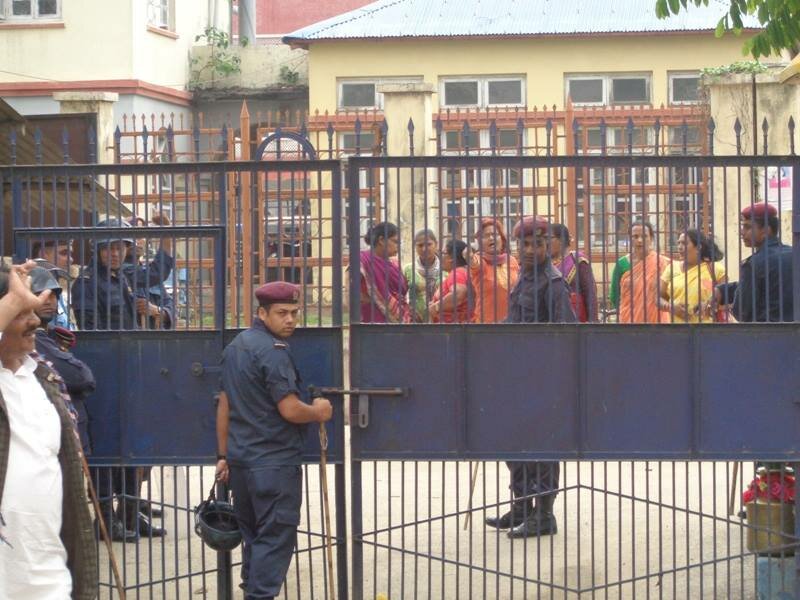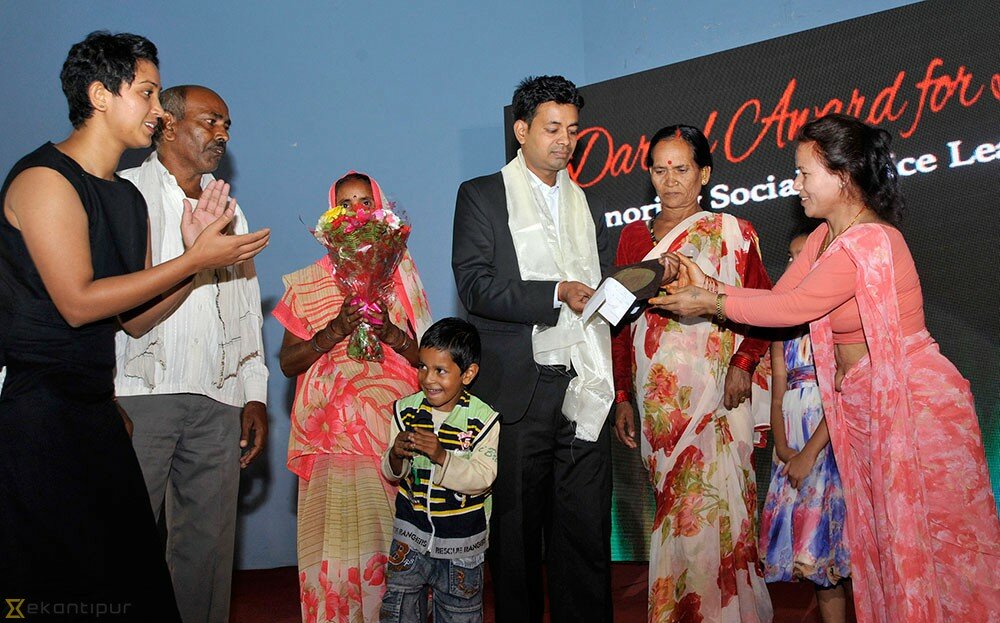By Sanjeev Kumar Shah
Of late, significance of philanthropy was actually realized when the country was hard hit by the devastating earthquake in 2015 that killed more than nine thousands people and affected million of others.
Besides foreign donors, individuals and organizations started charity works for the catastrophe and involved in rescue, relief and rehabilitation activities.
As a result Nepal stood at the 39th position in the World Giving Index in 2016 rated by Charities Aid Foundation of UK based on the data collected by Gallup World Poll compared to 76th position in 2015.
On June 2015, Centre for Global Prosperity (CGP) at Hudson Institute had ranked Nepal as one of the worst countries in terms of philanthropic freedom when it published its Index of Philanthropic Freedom 2015 report. Out of 64 countries, Nepal stood at the 62nd positions just ahead of Qatar and Saudi Arabia.
Generally, people in Nepal tend to provide donations in cash or kind when it comes to religious activities and sometime such donations are spent on construction of school buildings. However, there remains question of transparency.

Despite that people also get involved in philanthropic activities for serious causes whenever some parts of the country are hard hit by flood, landslides or other natural disasters. It means philanthropic activities in the country are done occasionally rather than on regular basis.
As majority of the NGOs are largely dependent on foreign donor agencies to conduct its activities, some of the organizations like TEWA, which has been supporting NGOs working for the women, Laxmi Pratishan—looking after and taking care of the Chepang children—and others, working to educate children of vulnerable groups, enhancing the capacities of women, Dalits and other marginalized groups, have been able to raise funds from individual donors.
However, it is quite difficult to access the exact data of people being involved in philanthropy—whether they donate on regular basis, occasionally or once in life-time. Lack of proper researches about the people’s giving habit has caused difficulties in analyzing fact-based philanthropic activities.
Recently, Chaudhary Foundation partnered with Centre for Asian Philanthropy and Society (CAPS) to conduct the survey for Doing Good Index (DGI) 2020 in Nepal with the aim of examining the environment for philanthropic works. Hope the survey could fulfill the gap and present the fact-based data and analysis as well as philanthropic practices and policies of the country.
In a way, Nepal has been able to spread message of peace-loving nation by sending large numbers of peacekeepers in UN mission. As per the Nepal Army’s August 25, 2019 data, Nepal ranks fifth in the world in terms of numbers of peacekeepers in UN mission.
People could spread another message that the nation is also ahead in generosity by involving in philanthropic activities be it for the causes inside the country or for development works in other parts of the world.
As per the Brigdespan Group report (2018), many ultra-wealthy individuals and families—who each hold $500 million or more in assets—said they want to achieve more with their philanthropy. In the United States alone, more than 140 billionaires have signed the Buffett-Gates Giving Pledge, committing to give half of their wealth to philanthropy during their lifetimes or upon their death.
In 2017, the nearly 2,000 “ultra-wealthy” American households—those that each held more than $500 million in assets and collectively controlled $3.7 trillion—contributed around $45 billion to charity, as per the report of Bridgespan Group.
Similarly, study conducted by Charities Aid Foundation (2019) found out that six in ten (62%) Americans gave money in 2018 and among them 50% was donated to charity/non-profit organizations, while 43% went to religious organizations and 25% sponsored someone for a charity.
One of the world’s most generous philanthropists Warren Buffett on July 1, 2019 announced that he will donate $3.6 billion in Berkshire Hathway shares to five foundations, including the Bill and Melinda Gates Foundation, according to Business Insider.
We need such commitments from wealthy individuals and families who could contribute their belongings for the various causes.
Richest persons of Nepal Binod Chaudhary, Shesh Ghale, Upendra Mahato, Ajay Sumargi, Aditya Jha, Jiba Lamichhane, Pashupati Shumsher Rana among others could set the examples for future generations who could show generosity.
It is the right time to do so as the country is in the verge of getting the status of developing country. Once the country gets the status, the foreign donor agencies will surely decrease the volume of amount of donations or shift their concentration from Nepal.
Recently, Founder and Principal of the International Council for Nonprofit Management (ICNPM), Bekay Ahn, who has been working in the nonprofit sector for twenty-five years, expressed also expressed similar concern about future of philanthropy in Nepal during a training in Lalitpur.
Ahn, who is an author, lecturer, teacher, speaker and fundraising consultant, speculated that there would be serious crisis in Nepal within 15 to 20 years if foreign donor agencies decline to funds to the non-governmental organizations and culture of individual philanthropy do not get its pace. In such a scenario, people from vulnerable and marginalized communities will suffer most as the government’s has often been unable to reach to such groups and provide them with the basic needs.
Since, the present government has also tightened international donor agencies and organizations activities in the country, the local non-governmental organizations have been struggling to continue its works without donations from international communities.
It is also the right time for the people to think seriously whether they want to preserve their assets, belongings, bank balances or properties for their own future generations, or want to donate major or partial portion of such belonging to the needy one. A culture of philanthropic activities needs to be developed no later than sooner.
On NGOs part, they also need to earn the trust of the donors that their hard-earned money and assets will be spent for the right cause and in a transparent manner. It would be ideal thing for the organizations to start fundraising activities right now and decrease their dependency from the foreign donor agencies to run their activities on regularly basis rather than half their works until funds from foreign donors come in.
[Photo Source: Time Magazine)




